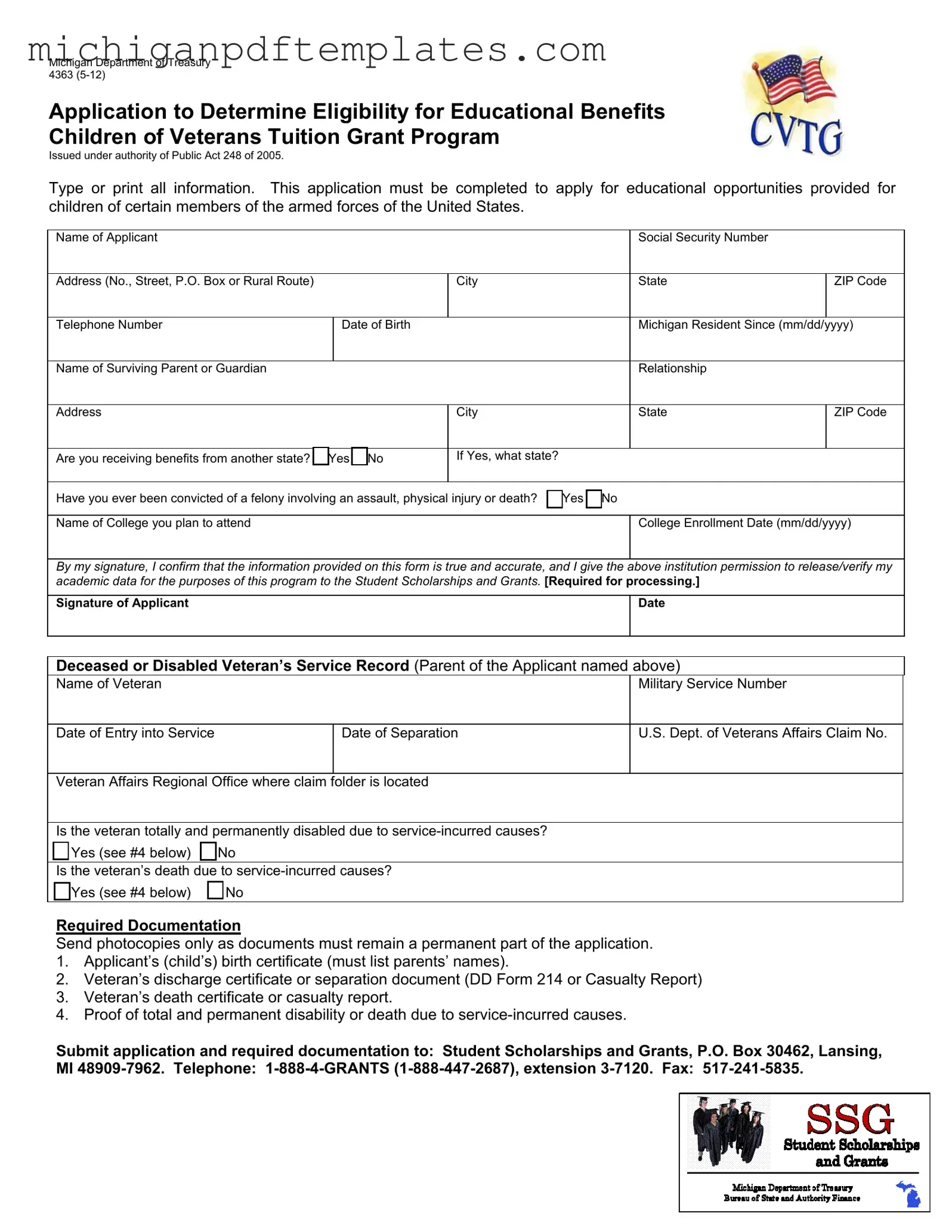Fill in Your Michigan 4363 Form
The Michigan Department of Treasury 4363 form serves as an application to determine eligibility for the Educational Benefits Children of Veterans Tuition Grant Program. This program is designed to provide educational opportunities for children of certain members of the armed forces of the United States. To begin the application process, please fill out the form by clicking the button below.
Get Your Form Now

Fill in Your Michigan 4363 Form
Get Your Form Now

Get Your Form Now
or
▼ PDF Form
Finish this form quickly and move on
Fill in and complete Michigan 4363 online quickly.